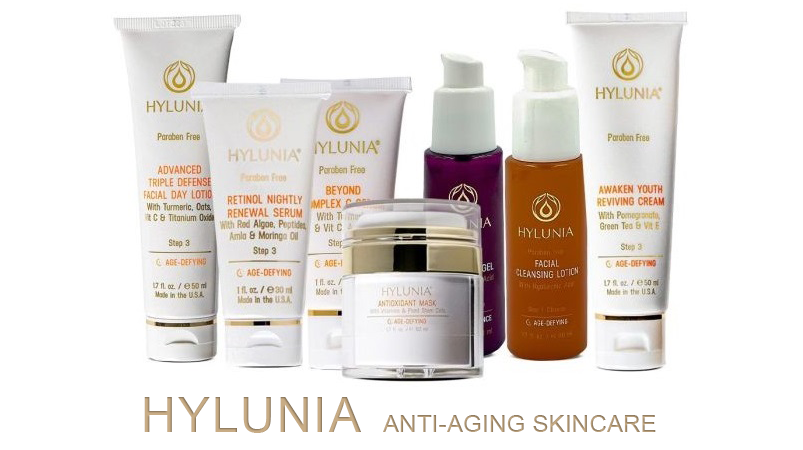
When it comes to skincare for mature skin, the right ingredients can make all the difference. As skin ages, it loses some of its natural firmness and glow, but that doesn’t mean you have to settle for dull, saggy skin. By incorporating some powerhouse ingredients into your routine, you can support your skin’s health and vitality.
Contents
Retinol: The Gold Standard for Anti-Aging
Retinol, a derivative of vitamin A, is one of the most researched and trusted ingredients for anti-aging. It encourages skin cell turnover, which helps fade fine lines, improve texture, and give skin a smoother appearance. Retinol also boosts collagen production, making skin look firmer over time.
How Retinol Works
Retinol penetrates deep into the skin and accelerates cell renewal. This process sheds old, dull skin cells and brings fresher, more vibrant cells to the surface. Over time, this leads to smoother skin and a reduction in visible signs of aging.
Using Retinol Safely
- Start Slow: Retinol can be potent, so start with a lower concentration and use it once or twice a week.
- Apply at Night: Retinol makes skin sensitive to sunlight, so it’s best used in your nighttime routine.
- Follow with Moisturizer: Retinol can be drying; a good moisturizer can help keep your skin hydrated and comfortable.
With consistent use, retinol can be a game-changer for mature skin, helping it look more youthful and revitalized.
Hyaluronic Acid: The Hydration Hero
Hyaluronic acid is like a tall glass of water for your skin. It’s a humectant, meaning it draws moisture from the environment and holds it in the skin. As skin ages, it naturally loses moisture, leading to dryness and the appearance of fine lines. Hyaluronic acid helps replenish this lost moisture, giving skin a plumper, smoother look.
Benefits of Hyaluronic Acid
Hyaluronic acid can hold up to 1,000 times its weight in water, which makes it incredibly effective at hydrating the skin. Well-hydrated skin appears plumper and smoother, which can reduce the look of wrinkles and fine lines.
Adding Hyaluronic Acid to Your Routine
Apply a hyaluronic acid serum after cleansing but before moisturizing. For best results, use it on damp skin to help lock in hydration. This simple step can make a noticeable difference in the softness and plumpness of your skin.
Vitamin C: The Brightening Antioxidant
Vitamin C is a powerhouse antioxidant known for its ability to brighten the skin and protect it from environmental damage. It also plays a crucial role in collagen synthesis, which helps keep skin firm and smooth. Adding vitamin C to your skincare routine can help fade dark spots, even out skin tone, and give your complexion a radiant boost.
Choosing the Right Vitamin C Product
When selecting a vitamin C product, look for formulas that contain ascorbic acid (the most effective form of vitamin C) at concentrations between 10% and 20%. This will ensure you’re getting the most bang for your buck in terms of potency.
How to Use Vitamin C
- Apply in the Morning: Vitamin C can help protect your skin from UV rays, so it’s best applied in the morning.
- Pair with Sunscreen: For optimal protection, apply sunscreen after vitamin C.
With regular use, vitamin C can brighten your complexion, improve elasticity, and help your skin look more youthful and even-toned.
Peptides: Support Your Skin’s Structure
Peptides are small chains of amino acids that act as building blocks for proteins like collagen and elastin. These proteins are essential for keeping skin firm and elastic, and as we age, they naturally break down. Applying peptides topically can help stimulate the production of collagen, giving mature skin a more lifted and resilient look.
How Peptides Work
Peptides send signals to your skin to produce more collagen and elastin. They essentially “trick” the skin into thinking it has been injured, which stimulates the repair process and leads to firmer, more youthful skin.
Best Types of Peptides for Aging Skin
- Signal Peptides: Stimulate collagen production and support the skin’s structural integrity.
- Copper Peptides: Known for their wound-healing properties, copper peptides can help improve skin firmness and texture.
Incorporating a peptide serum or moisturizer into your routine can provide a significant boost in skin firmness and resilience.
Niacinamide: The Multitasking Wonder
Niacinamide, also known as vitamin B3, is one of the most versatile ingredients in skincare. It helps strengthen the skin’s barrier, reduce redness, and improve texture. For mature skin, niacinamide can reduce the appearance of fine lines, even out skin tone, and keep skin looking healthy and resilient.
Benefits of Niacinamide
Niacinamide improves skin elasticity, enhances the barrier function, and can even help reduce oil production, making it suitable for all skin types. Its calming effect on the skin also makes it ideal for sensitive or reactive skin types.
Using Niacinamide in Your Routine
Apply niacinamide after cleansing and before any heavier serums or creams. It pairs well with almost all other ingredients, making it easy to add to any routine without irritation. Niacinamide is gentle yet powerful, making it a must-have for maintaining vibrant, even skin.
Squalane: Lightweight Hydration with a Protective Boost
Squalane is a lightweight, non-comedogenic oil that hydrates and soothes without leaving a greasy feel. It mimics your skin’s natural oils, making it ideal for mature skin that’s prone to dryness. Squalane also has antioxidant properties, helping protect against environmental damage and prevent premature aging.
Why Squalane is Great for Mature Skin
Unlike heavier oils, squalane is absorbed quickly and doesn’t clog pores. It helps strengthen the skin’s barrier, sealing in moisture and keeping skin hydrated throughout the day.
How to Incorporate Squalane
Use squalane as the last step in your routine, after serums and creams, to lock in hydration. You can also mix a few drops into your moisturizer for an added boost. Squalane is perfect for layering, giving mature skin a soft, supple feel.
Revitalizing Mature Skin for a Healthier, Youthful Glow
With the right ingredients, you can help your skin look revitalized and resilient. Retinol, hyaluronic acid, vitamin C, peptides, niacinamide, and squalane each bring unique benefits to aging skin, from firming and brightening to hydrating and protecting. Adding these must-have ingredients into your daily routine can make a world of difference in how your skin looks and feels. Remember, consistency is key—these ingredients work best over time, and your skin will thank you for it!

